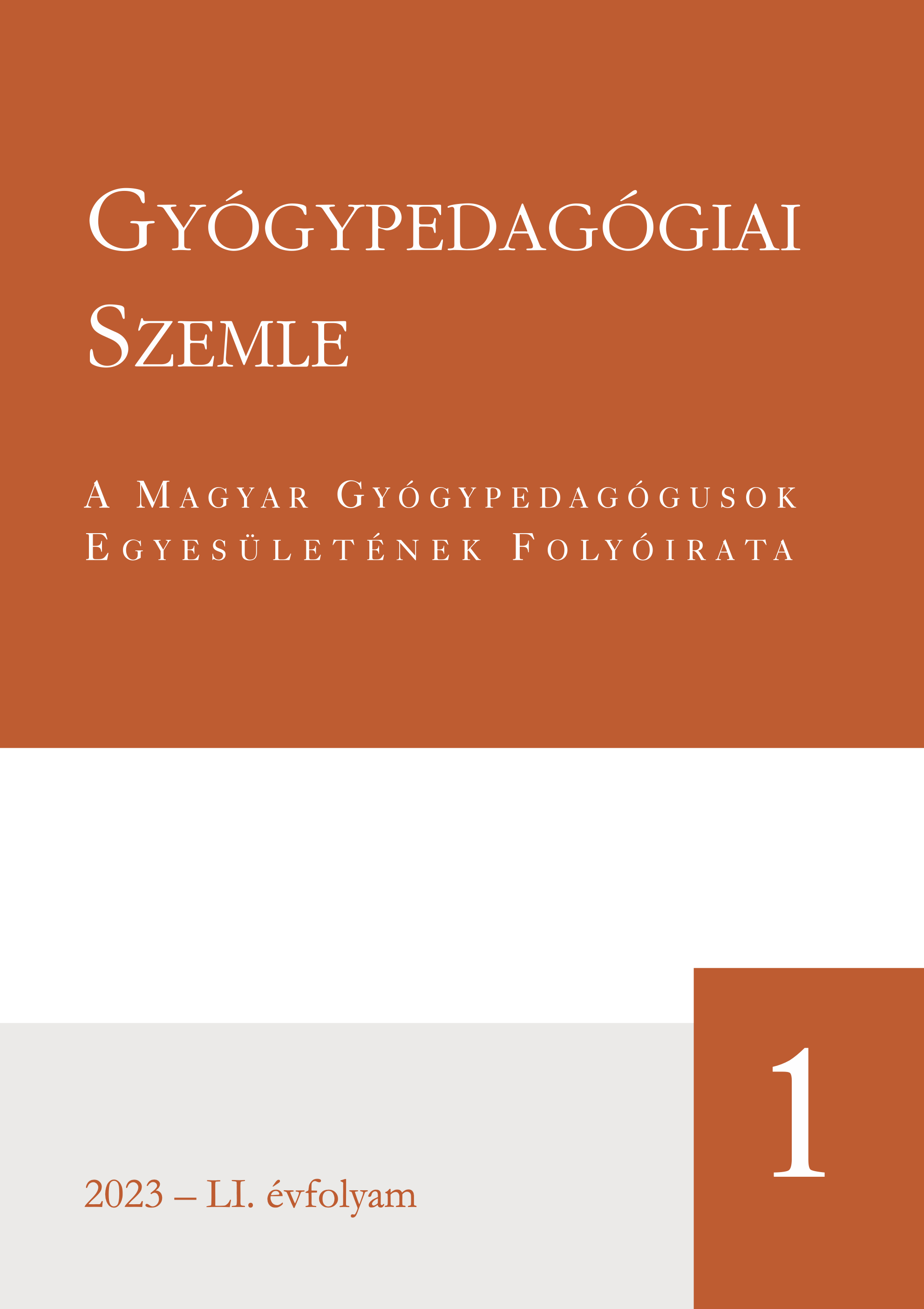Opportunities for the development of pragmatic skills of hearing-impaired children and students in inclusion
DOI:
https://doi.org/10.52092/gyosze.2023.1.3Keywords:
pragmatical skills, natural auditory-verbal therapy, inclusionAbstract
Abstract
Background and aims: Hearing impaired children and students may experience difficulties in pragmatic language use (Yoshinaga-Itano et al., 2020; Paul et al., 2020; Paasch & Toe, 2020; Zaidman-Zait & Most, 2020). Challenges with pragmatic skills can often persist into adulthood (Matthews, 2014, as cited in Crowe & Dammayer, 2021), affecting the individual's effective social inclusion (Paul et al., 2020; Paatsch & Toe, 2020; Szarkowski et al., 2020). Based on trends in international research on the pragmatic development of children and students with hearing impairment, a conversational framework (Paatsch & Toe, 2020) has been formulated, which may provide an opportunity for holistic language development (Paul et al., Crowe & Dammayer, 2020; Szarkowski et al., 2020) in inclusive education. This article intends to emphasize the national potential of this intervention by considering the conversational model (Paatsch & Toe, 2020).
Method: This narrative review expands on a brief summary of international efforts and compares the methodology of (natural) auditory-verbal therapy with the conversational framework for the development of pragmatic skills recommendations (Paatsch & Toe, 2020).
Conclusion: The (natural) auditory-verbal concept for hearing-impaired children used in Hungary may be appropriate for the conscious development of pragmatic competence in formal and informal interactions in collaboration with mainstream teachers and peers.
Keywords: pragmatical skills, natural auditory-verbal therapy, inclusion

